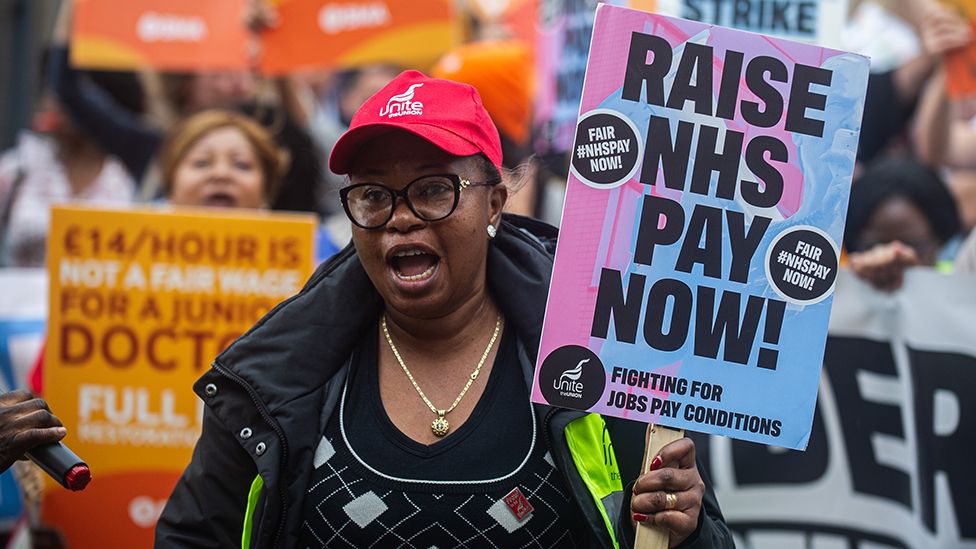-
Published4 January
A six-day strike by junior doctors took place in England in January, causing huge disruption to services. The British Medical Association (BMA) says if the government makes a credible offer it will end the walkouts. But how much will it take to settle this dispute?
Junior doctors started their industrial action later than many other workers.
It was March 2023 by the time they first went on strike. By that point, walkouts had been going on for months in the NHS and other sectors.
But their ask – a 35% pay increase – was the largest of all. Unlike most of the rest, it was not focused on the post-pandemic spike in inflation.
Instead, it was about – in the words of the BMA – restoring lost pay after 15 years of below-inflation rises.
The union used a measure of inflation known as RPI, which includes housing costs, as the basis for its pay claim.
This shows that between 2008-9 and 2021-22, pay for junior doctors had fallen by 26% once rising costs are taken into account. To reverse that drop would take a 35% increase.
But that is just one measure of inflation. If the Office for National Statistics-favoured measure known as CPI is used, the drop in pay is lower.
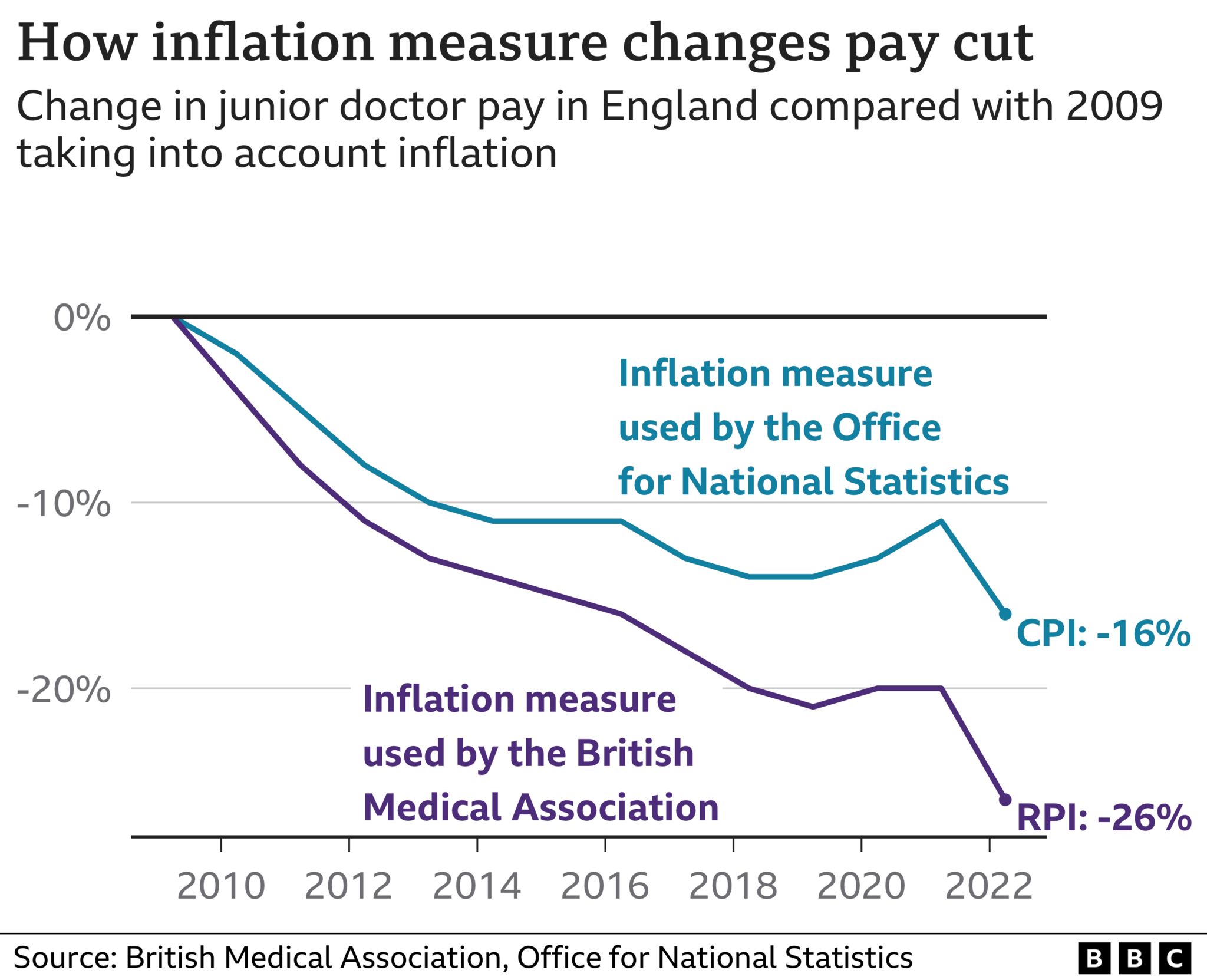
Regardless of which measure is used, much has happened both to inflation and the pay of junior doctors since those sums were done.
Junior doctors have in fact received two pay rises. One in 2022-23 was worth 2%, while another in the current 2023-24 year was worth 8.8% on average (it was structured so the lower-paid junior doctors received the most – with those in their first year of training getting in excess of 10%).
It brought the starting salary to more than £32,000, with those towards the end of their training receiving in excess of £63,000 currently.
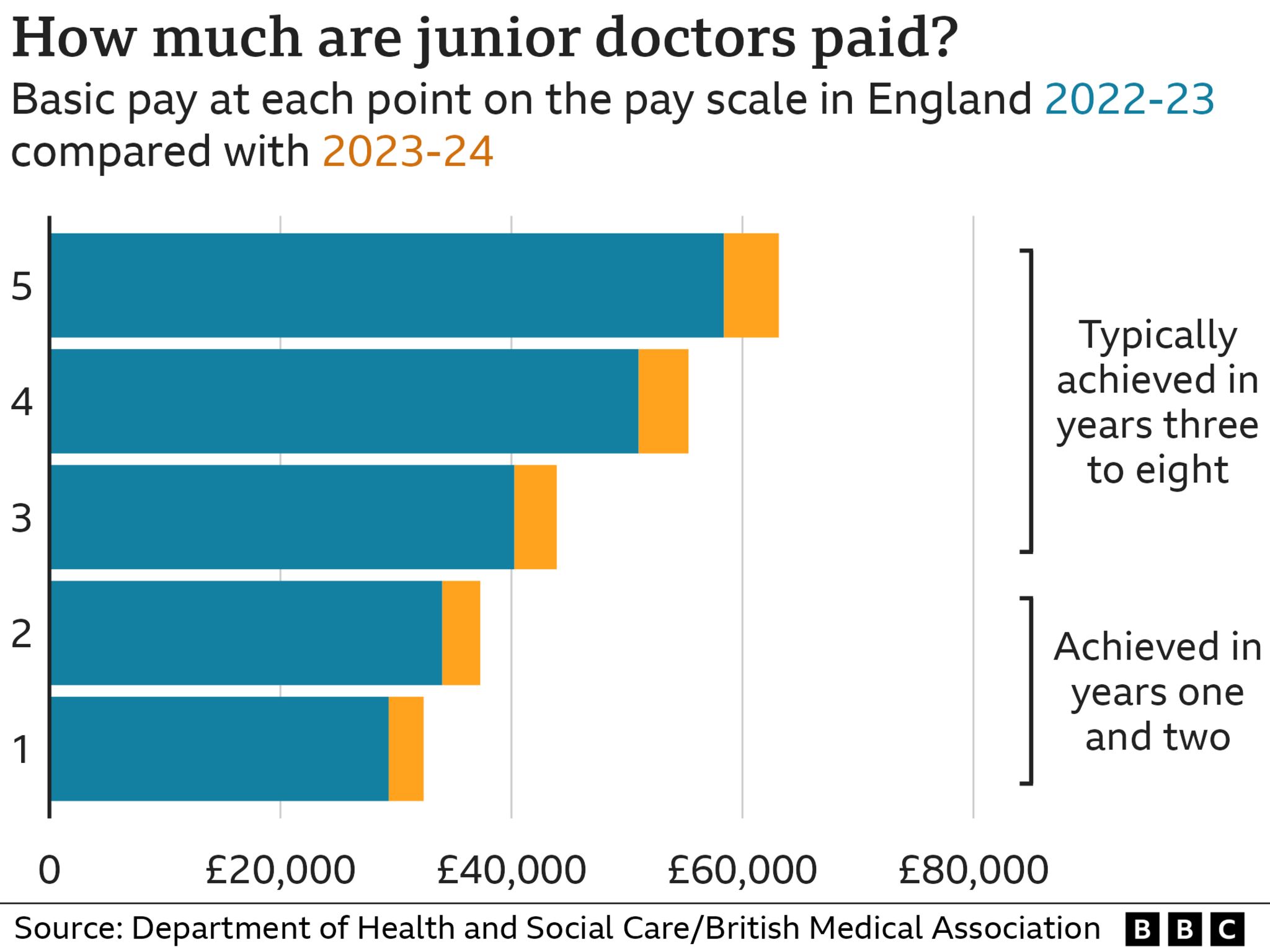
And that is just the basic pay. Junior doctors, like other NHS staff, receive extras on top and these can be worth 25% to 30% more for things such as unsocial hours and additional work. The junior doctor contract stipulates that they can be asked to work up to 48 hours a week rather than the standard 40.
So, given this, what would it take for junior doctors to stop their strike action?
Walkouts were paused between early October and December to allow talks to take place. As well as pay, these involved discussions on working conditions as well – a long-standing issue for junior doctors has been the amount of debt they build up while studying for five years at university, as well as the lack of control they have on where and when they are asked to work.
It is not uncommon to find reports of people being rostered to work despite giving months of notice for big events like family weddings.
It can also be difficult to put down roots, because they can find themselves doing placements in different parts of the country.
All this and more was discussed during the talks, alongside the offer of an extra 3% pay award on top of the 8.8% that has already been given.
The BMA’s junior doctor leaders, Dr Vivek Trivedi and Dr Robert Laurenson, made it clear this was not enough, and have been urging ministers to make a “credible” new offer. The demand for pay to be restored in one go has been toned down – they now say they would be happy to see it phased in over a number of years.
The BMA says the pay rises seen over the last two years have made no dent in the amount of lost pay since 2008-09 because of what has been happening with inflation.
Window of opportunity
However, there is clearly scope for negotiation. In August, a pay deal was reached with junior doctors in Scotland. It included a 12.4% pay increase for 2023-24, which is in a similar ballpark to the 8.8% plus 3% that appeared to be on the table in England just a month ago.
There are some key differences – junior doctors in Scotland received more than twice the 2% their peers in England got in 2022-23 and so started from a higher base, and the BMA says the Scottish deal included promises on future pay increases with a view to restoring pay – something the union says it has confidence in as there is no election there until 2026.
Some in government believe the differences are small – and instead that the junior doctor leaders are being political. An interview Dr Laurenson gave to the BBC’s Today programme over the summer, in which he said the same deal as Scotland would not be accepted in England because the governments are different, has been cited by those close to the negotiations.
Nonetheless, there is hope that once this walkout ends there will be a return to talks. Behind the scenes, there is a recognition on both sides that strike action cannot continue for much longer.
-
-
Published3 January
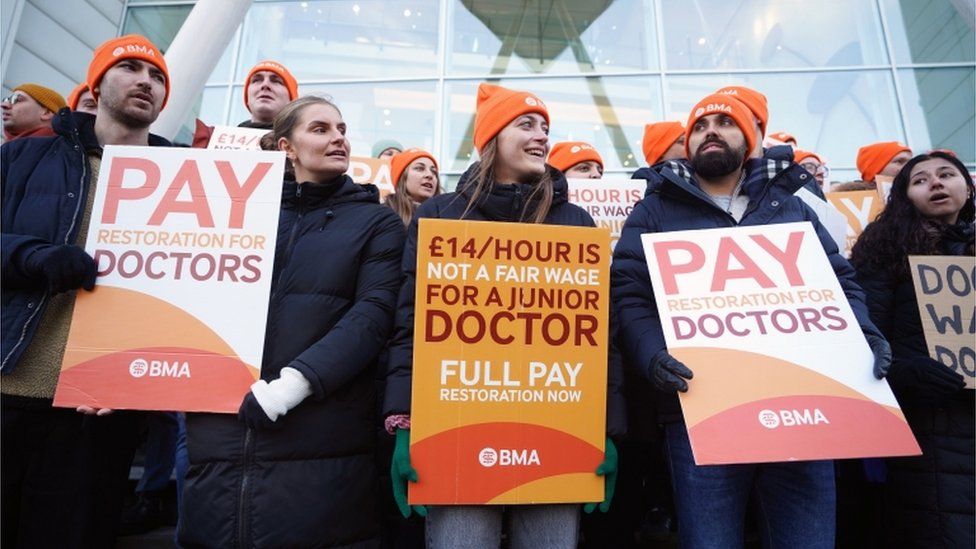
-
-
-
Published24 August 2023

-
-
-
Published5 December 2023
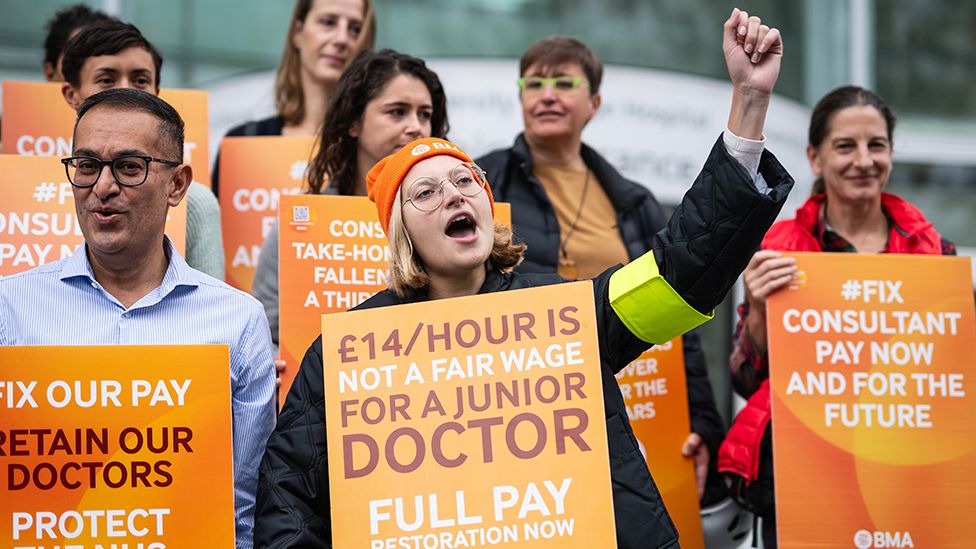
-
-
-
Published28 November 2023
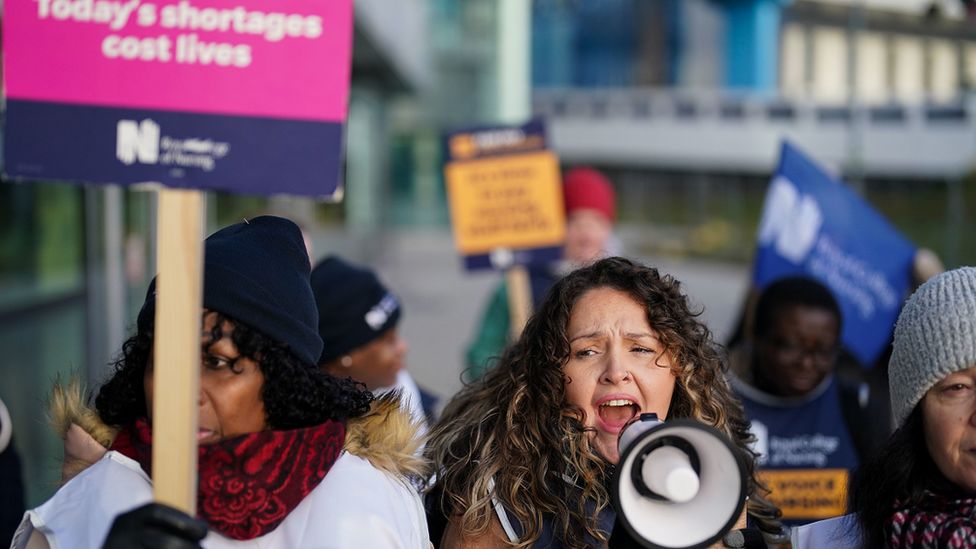
-
-
-
Published27 November 2023
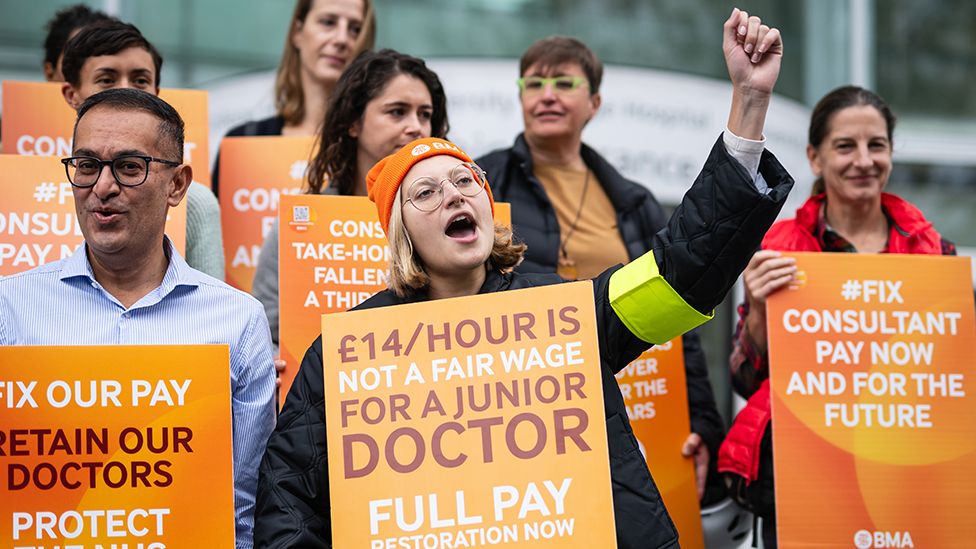
-
-
-
Published3 December 2023
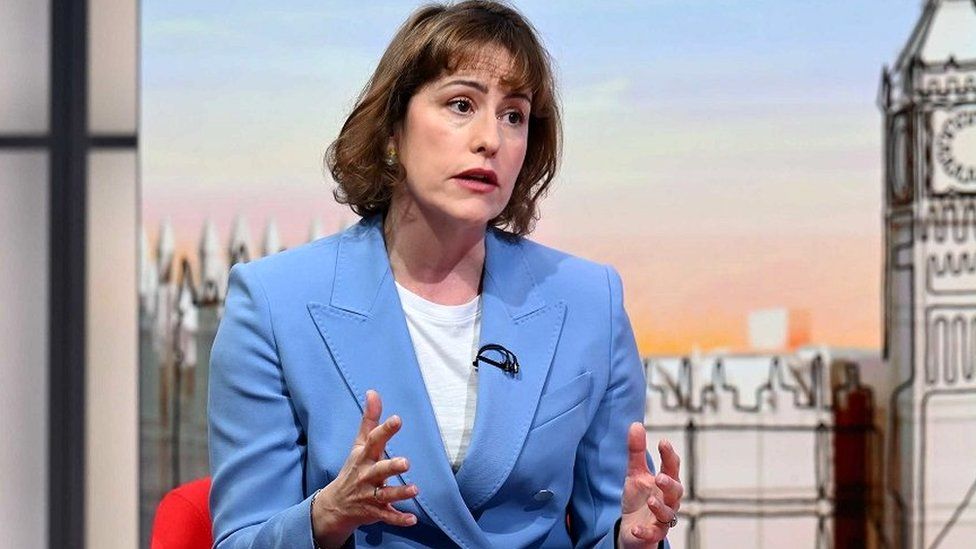
-
-
-
Published9 August 2023

-
